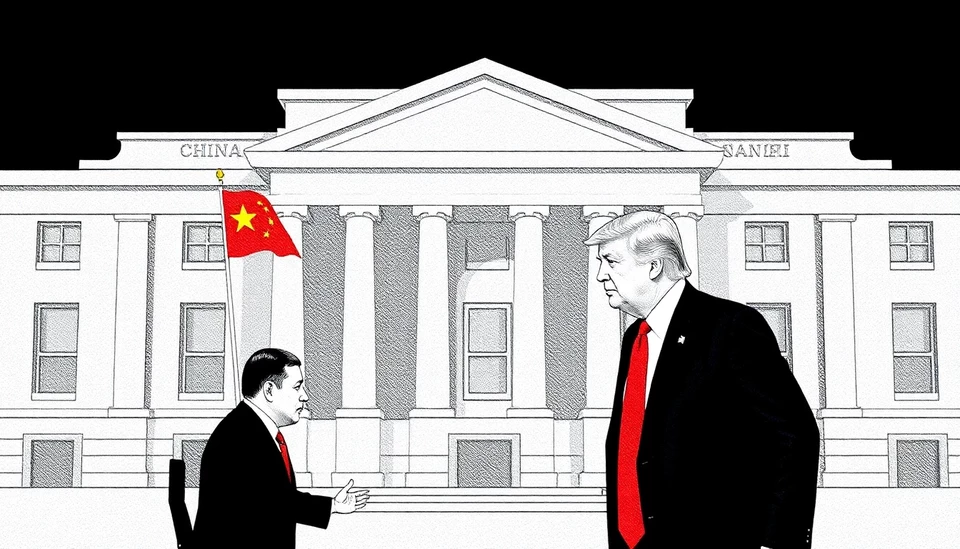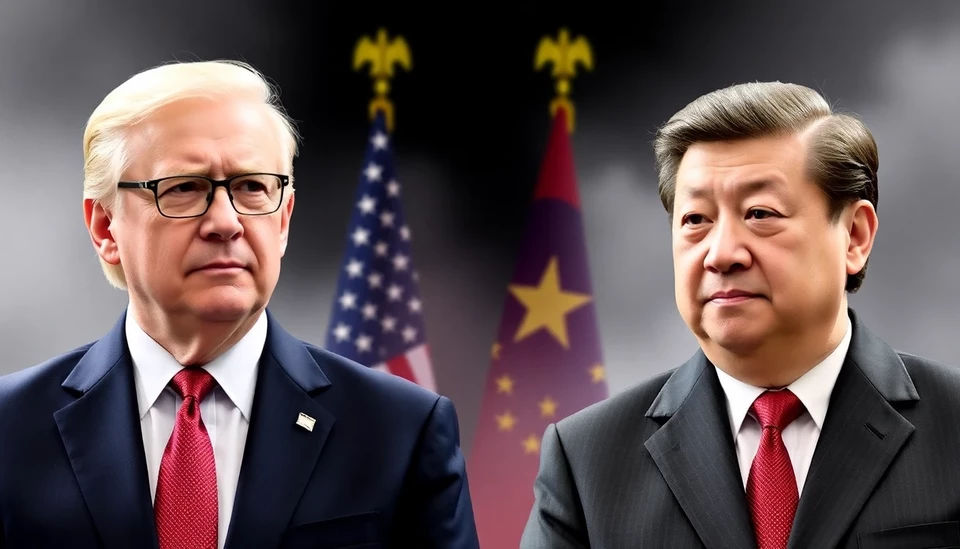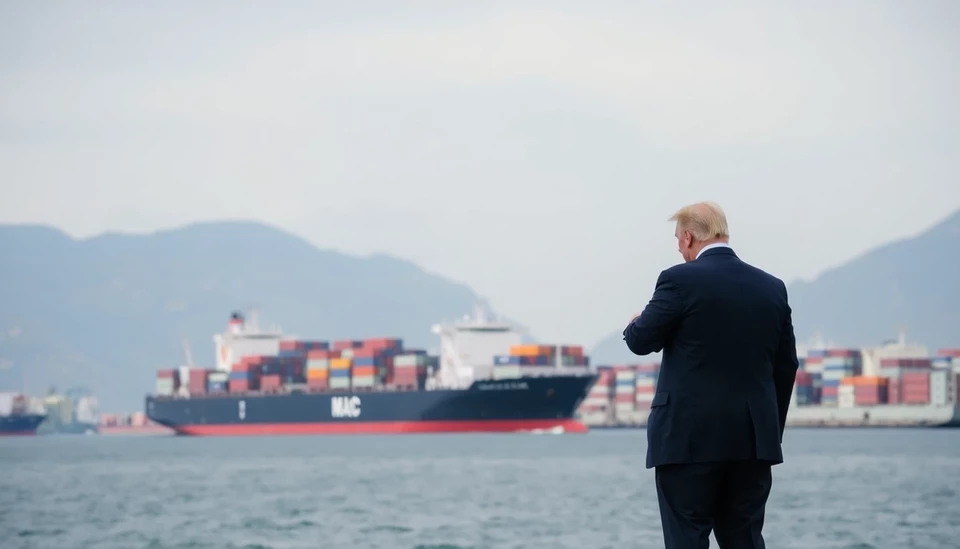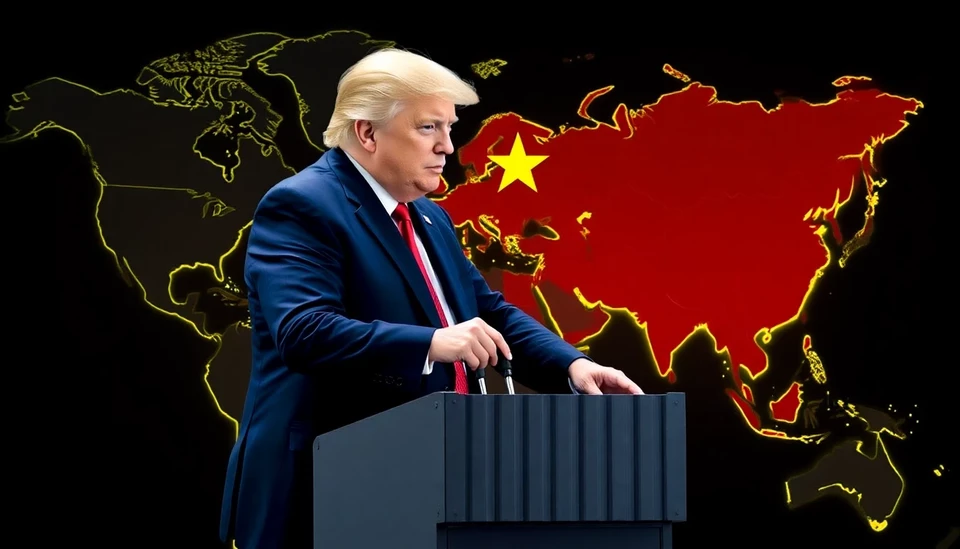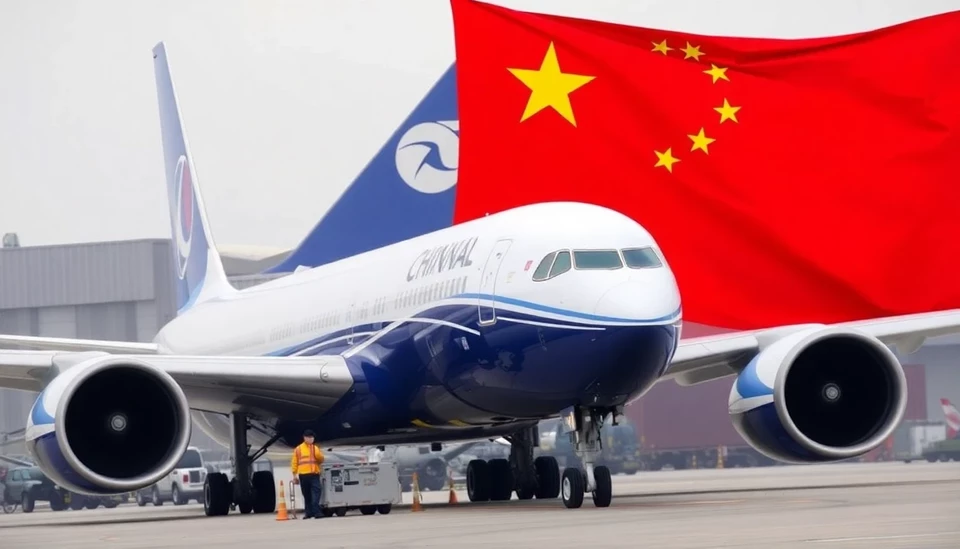
In recent developments that underscore the volatile nature of international markets, the financial tension between the United States and China has reached a significant inflection point. As global investors wrestle with the implications of an increasingly strained relationship between the two largest economies, market indexes have experienced pronounced declines, intensifying concerns regarding economic health and stability.
The U.S. stock market has shown alarming signs of weakness, with major indices, including the S&P 500 and Nasdaq Composite, plunging significantly in the wake of renewed trade tensions and a series of aggressive policy moves from the Chinese government aimed at stabilizing their economy. Amid sluggish growth and persistent inflation, these sweeping policies are designed to bolster local industry but have inadvertently triggered apprehension among foreign investors.
In the latest trading sessions, reports suggest that investor sentiment has soured, with many opting to exit positions in anticipation of further volatility. This skepticism is augmented by concerns that the ongoing trade war could escalate, exacerbating existing economic challenges. The events unfolding seem to be testing the "pain threshold" of both markets, as investors gauge their tolerance for risk in an environment marked by uncertainty.
Economic analysts are closely monitoring the situation, noting that both the U.S. and China are interlinked in many ways. Disruptions in their trade relationship often ripple through global supply chains, affecting commodities and impacting countries far removed from the initial conflict. Consequently, many nations find themselves bracing for potential fallout as tariffs and trade policies become weapons wielded in this high-stakes geopolitical chess match.
Moreover, corporate earnings reports are becoming a primary focal point for analysts seeking to measure the tangible impact of these tensions. Companies with significant exposure to Chinese markets or supply chains are particularly vulnerable, prompting a reassessment of valuations across sectors. The technology industry, traditionally viewed as a safe haven owing to its massive growth potential, is now grappling with fears of regulatory crackdowns and market access limitations. Such factors add layers of complexity to already fragile market conditions.
Investors are particularly concerned about how the Federal Reserve might respond to these developments. With rising interest rates already complicating the borrowing landscape, the Fed faces a dilemma: how to support growth in the face of declining market performance while also keeping inflation in check. The potential for strategic pivoting raises questions about timing and action, especially in a polarized political environment where each move is heavily scrutinized.
As this narrative unfolds, market watchers are left contemplating the potential outcomes of this tug-of-war. Will the pain thresholds of investors lead to a significant market reset, or will a recovery emerge in response to newly crafted economic policies? The coming weeks may be instrumental in determining not only the trajectory of the U.S. and Chinese economies but also the overarching health of global markets.
Stakeholders from various sectors are advised to remain vigilant, keeping a close watch on both nations' policy changes and market responses. As trade relationships evolve, so too will the sentiment and strategies of investors navigating this complex economic landscape.
In conclusion, as the U.S.-China economic dynamics continue to enfold, both investors and economic leaders alike are aware that the choices made in the coming days and weeks will have lasting repercussions. The echoes of these decisions will reverberate through stock exchange floors and corporate boardrooms around the world.
#USChinaRelations #StockMarket #EconomicTensions #TradeWar #Investors #MarketVolatility
Author: Rachel Greene
